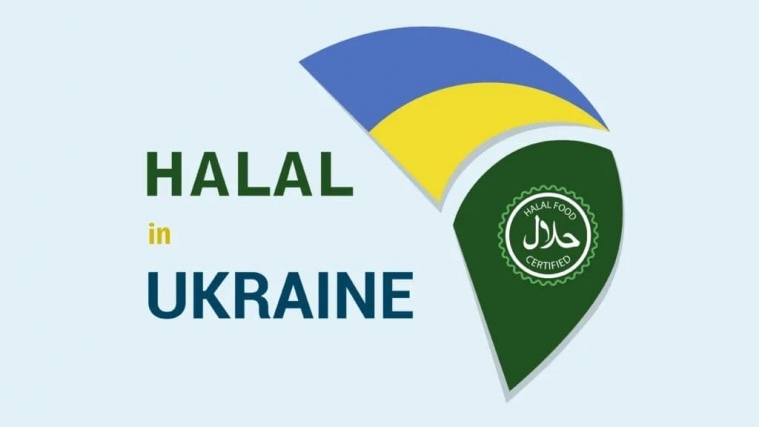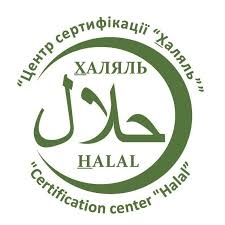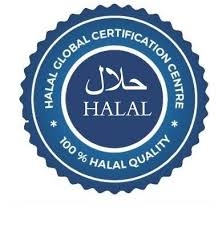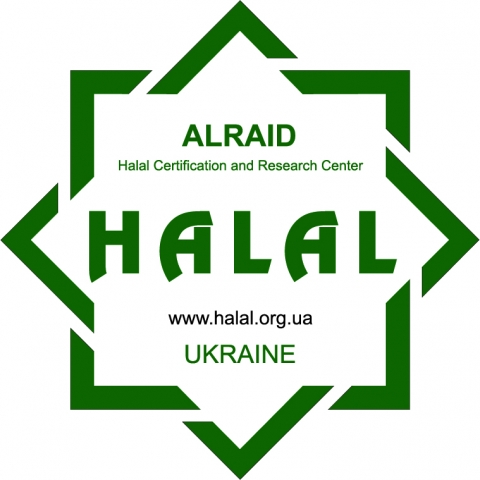The halal industry actively develops not only in the Islamic countries, but also in the former-Soviet Union republics, particularly in Ukraine. More people, not only Muslims, choose halal products. But how did everything start? When did Ukrainian food companies realise they needed to comply with the strict requirements of Sharia, Islamic law, consisted of regulations and specific rules, other words a general set of orders and restrictions that regulate almost all spheres of Muslim daily life. In this article, we will tell you: what backgrounds were for establishing an expert organisation in Ukraine to monitor the domestic production compliance with Sharia strict requirements; who was the first to certify Ukrainian halal products, and how it helped Ukraine to make a name in the Islamic world markets, expand the geography of economic relations and offer Ukrainian producers an alternative to the Russian market.
The products exported by Ukrainian enterprises, first of all, food manufacturers must comply with the strict requirements if the above companies want to meet domestic consumers’ demands and enter the market of Arab-Muslim countries.
Ukrainians are well familiar with Nasha Ryaba, Qualiko, Ukrainian Chicken, Sultanah, Assilah, Sekrety shefa, Kurator, Lehko!, Baschinsky that are brands of Myronivsky Hliboproduct (MHP) agro-industrial holding, one of the largest domestic poultry and meat producers in Europe. In 2008, MHP found the product export to Muslim countries required a halal certificate. MHP reached out to Alraid All-Ukrainian Association, because at that time it was not only the first, but the one organisation in Ukraine to officially certify food products for compliance with halal standards, thus in cooperation with the Sharia Committee of RAMU Umma.
We’d like to notice that Alraid All-Ukrainian Association has existed for almost a quarter of a century and is the first organisation in Ukraine to certify food products that are compliant with the halal standards. Later, on July 12, 2010, Alraid Information Analysis Centre was established, and already on December 11, 2012, Alraid organisers opened Alraid Halal Certification and Research Centre.
For more than 10 years of cooperation with Alraid Halal Research and Certification Centre, MHP has broadened their export destinations and nowadays distributes their products to more than 50 countries including post-Soviet states, countries of Asia, Africa and the Middle East. Also MHP has become one of Gulfood sponsors, which is the largest platform for Halal-certified food products in Dubai (UAE).
Thus, Alraid Halal Research and Certification Centre can be truly called a pioneer and the first in this field that gave Ukrainian manufacturers to the Islamic world.
Over time, more and more Ukrainian manufacturers have become of interest to certify their products that meet halal requirements. Other Muslim organisations followed Alraid's example. Halal Certification Centre was opened on November 23, 2011, and Halal Global Ukraine Certification Centre was established later, on January 17, 2016. Both also made a significant contribution to the country's economy and actively compete with each other that enable Ukrainian enterprises to export more products to the Middle East and other regions of the Islamic world every year.
In 2017, Alraid Halal Research and Certification Centre got a major client, Roshen Confectionery Corporation, thus reaffirming once again its perfect reputation and high status in the field of halal certification in Ukraine.
The fact the Ukrainian companies entered into Arab-Muslim world markets can hardly be overestimated against the backdrop of the geopolitical processes affected the international business. After Russia occupied a part of the Ukrainian territories in 2014, the trade between Ukraine and the Russian Federation has annually declining trend. Thus, in the first quarter of 2020, Ukrainian export to Russia decreased by 15%. As of April 2020, Ukraine has lost $ 569.42 million in trade with Russia; in 2019, the trade deficit was over $ 1 billion. Today Ukraine almost does not export food to Russia. Russia mostly imports inorganic chemical products; iron, boilers and railway equipment. So, there is no surprise that commodity producers started looking for new sales markets.
In 2014–2015, the certification centres made connections with the countries of the Middle East and other regions, receiving appropriate accreditation and presenting Ukrainian food products to potential consumers.
In 2015, Alraid Halal Research and Certification Centre took part in Malaysia International Halal Showcase (MIHAS), represented Ukraine and a number of certified domestic producers.
In that year, the representatives of Alraid Certification Centre participated in the Gulfood World Exhibition held in Dubai (UAE), which has become strategically important event for those food processing companies already established business relations in a region of high economic growth and strong demand for quality food. More than 3 thousand participants from 28 countries took part in the exhibition.
In 2016, Alraid Halal Research and Certification Centre once again represented Ukrainian companies by participating in the fifth World Halal Summit held in Istanbul. Alraid representatives learnt about the latest trends in the field, met new business partners to establish cooperation between Ukraine and Turkey in the halal industry.
In 2017, Halal Certification Centre got GSO accreditation, which empowered it to certify food products met the halal requirements of the Gulf countries (UAE, Saudi Arabia, Qatar, Bahrain, Oman, Kuwait and Yemen), and took it to a new, higher level. From then, more and more Ukrainian manufacturers have cooperated with Halal Global Ukraine Certification Centre. It has got a well-defined rate in the halal industry and is recognised by companies from Ukraine and other countries either.
As for HALAL Certification Centre, in 2019 it obtained JAKIM accreditation and received recognition in Malaysia. In a little while HALAL got EIAC accreditation allowed to certify food products in compliance with UAE Halal requirements.
Since 2008, above mentioned certification centres have significantly contributed to the development of Ukrainian halal industry. That is important not only for foreign economic relations; non-Muslims who prefer healthy food are also among halal products consumers. Every year you can see more and more such products on Ukrainian supermarkets shelves, and in markets. Many eating places also choose halal-certified food.
Today, there are more than 20 halal certification centres in Ukraine, but not all of them meet strict requirements of Sharia that are imposed not only on manufacturers, but on the centres as well. Following our research we found out that among a large number of such centres, there is no doubt about Alraid Halal Research and Certification Centre, Halal Certification Centre and Halal Global Ukraine Certification Centre and they still remain authoritative.





